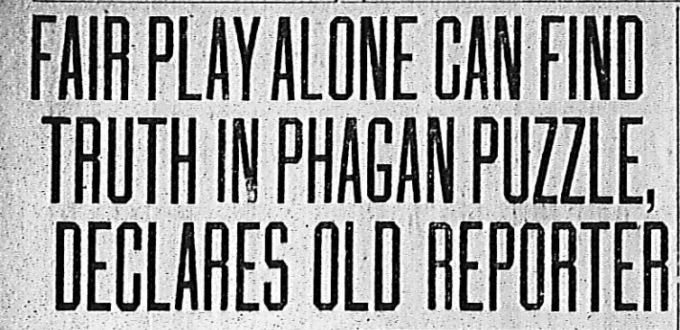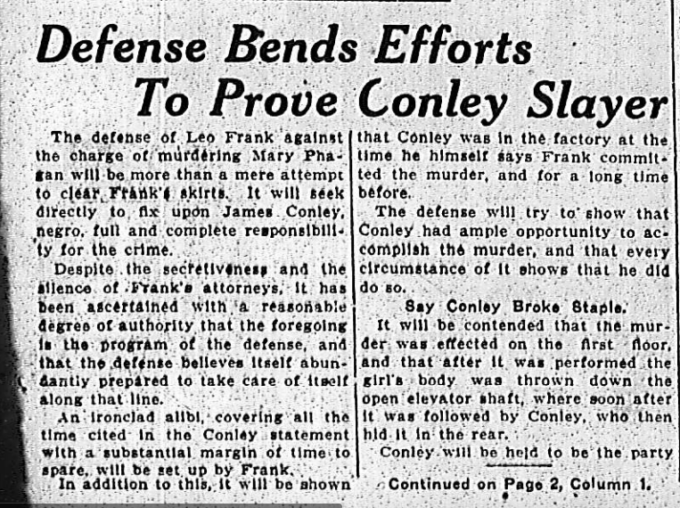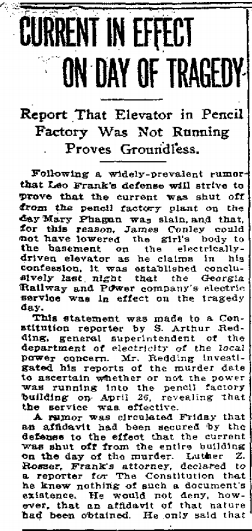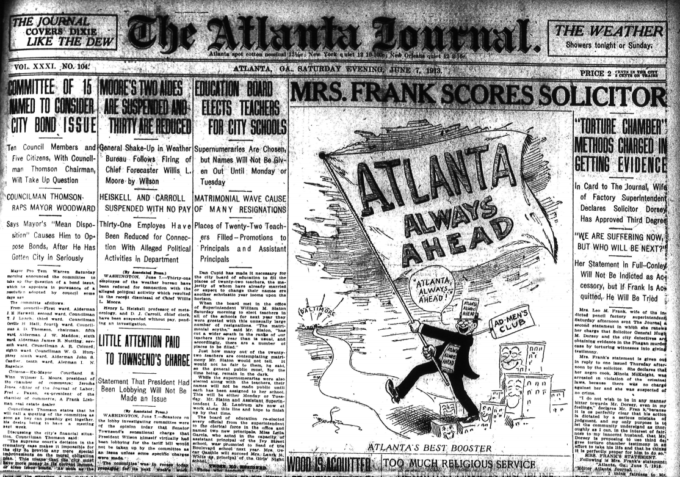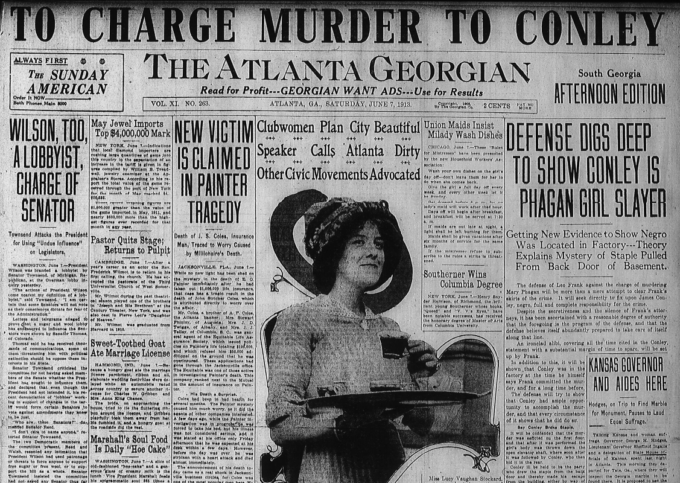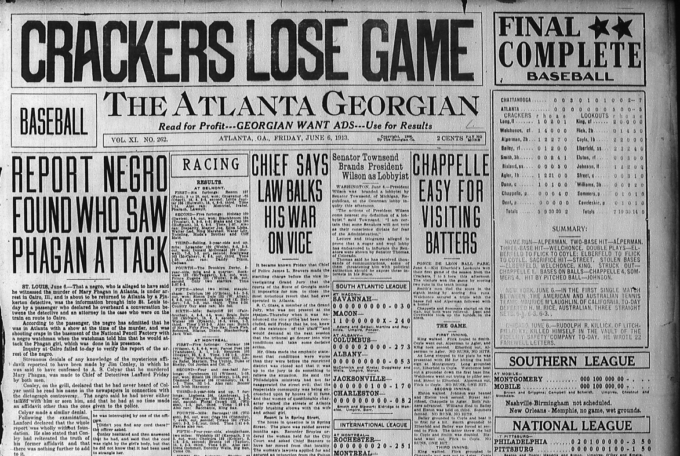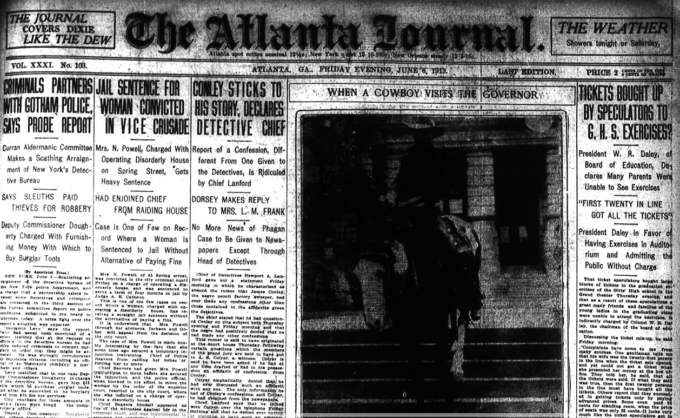
Luther Z. Rosser, leading attorney in the defense of the indicted pencil factory superintendent. He was snapshotted Friday morning while on his way to the court house to protest to Judge Roan against James Conley, the negro sweeper, remaining in the custody of the city detectives.
Another in our series of new transcriptions of contemporary articles on the Leo Frank case.
The Atlanta Journal
Friday, June 13, 1913
“Conley and His Counsel Are Wise—Their Hope Is That the Detectives Will Save Negro From a Confession, Giving Him Immunity, Provided He Continues to Put Guilt on Frank”
Several sensational points are contained in the written answer which Rosser & Brandon, attorneys for Leo M. Frank, made Friday morning to the rule nisi issued by Judge L. S. Roan calling upon Leo M. Frank, Newt Lee, or any other person suspected of the murder of Mary Phagan, or any citizen of the state of Georgia, to show cause why James Conley, the negro sweeper, should not be released as a material witness.
This answer was filed by Attorney Rosser, wkho [sic] referred to it as a “protest” and who asked that it be made a part of the court record. In it the attorneys for Frank declare that “to enact the farce in the court’s presence of releasing the negro and immediately return him to his wet nurses at the police station would resemble child’s play.”
The intimation is very clearly made that the solicitor general and the detectives wish to keep Conley in their custody at police headquarters in order that they may bolster up his sworn confessions and that they dare not let the negro talk freely for fear that he may destroy the value of “one of a number of contradictory statements made by him.”
“That the detectives should wish to keep Conley in custody and entertain him at the city’s expense is not at all surprising,” says the answer. “They have already extracted from him extravagant, unthinkable confessions, three or four in number. To these statements they have given the widest publicity, and to the credibility of the last one they have staked their reputations and hope of place.
“Upon the constancy and stability of this witness they have staked their […]
(ontinued [sic] on Page 7, Col. 1.)
ROSSER DECLARES DETECTIVES DARE NOT LET CONLEY TALK
(Continued from Page 1.)
[…] all. They would be less than human if they did not bend all their power and ingenuity in holding him to his present statement, adding to and taking therefrom only such things as will aid its credibility.” Continue Reading →

 Another in
Another in 



 Another in
Another in 




